Chevrolet Bolt EUV and EV – It's a Small World After All [Update]
In launching the Bolt EUV and EV, leave it up to Chevrolet and Disney’s Imagineers to spin a pretty good tale. Nick Cho, the creator of TikTok, better known as YourKoreanDad, was the host of their launch video.
Ford CEO Asks Battery Suppliers to Stop Fighting
Battery suppliers LG Chem and SK Innovation have what could be politely described as an intense rivalry. With the automotive industry desperate to secure reliable access to the most essential components for the planned electric vehicle offensive, chemical companies specializing in electronics are very much in demand and they’re all jockeying for power.
On Wednesday, the U.S. International Trade Commission (ITC) sided with LG Chem after it had accused SK Innovation of misappropriating trade secrets pertaining to EV battery technologies. But Ford CEO Jim Farley is asking the South Korean businesses to call a ceasefire and settle things out of court, presumably through the transfer of a large sum of money.
Xperi's DTS AutoStage is the Next Big Thing in Infotainment
Xperi’s DTS AutoStage is the next evolution in multimedia, if you turn on the radio while starting your car like millions of others do worldwide.
Mickey Thompson Tests Tire Toughness at King of the Hammers
Only 37 of 84 cars finished the King of the Hammers, proclaimed the planet’s toughest one-day off-road race, on time this year. Tad Dowker and Jordan Pellegrino, two racers on Mickey Thompson Baja Boss X tires, were among the finishers.
Chip Shortage Expands, GM Forced to Idle Factories
While the Great Semiconductor Shortage of 2021 probably isn’t going to the defining historical topic of the modern era, it’s presently doing a number on the automotive industry. Volkswagen Group, Ford, Mazda, Nissan, Subaru Corp., Toyota, and Stellantis have all reported the need to scale back production this year.
On Wednesday, General Motors said that it would also have to handle the issue by closing down four plants next week. Affected sites include Kansas’ Fairfax Assembly, Ontario’s CAMI Assembly, and Mexico’s San Luis Potosí Assembly. GM Korea will likewise be operating Bupyeong 2 at half capacity, according to Reuters.
Amazon's Bezos Transitions to Exec Chair and Names New CEO
Amazon’s founder and CEO Jeff Bezos announced today that he will transition to Executive Chair in the 3rd quarter of 2021, with Andy Jassy to replace him as CEO at that time.
2021 Ford F-150 Raptor Drops the Hammer
Ford has a knack for pulling off high-profile reveals, and the 2021 F-150 Raptor is no exception. Launching it while the King of the Hammers is taking place is certainly apropos for a truck inspired by desert racing.
Going Android: Ford and Google Enter Six-year Data Partnership
On Monday, Ford and Google jointly announced a strategic, six-year partnership to accelerate the automaker’s connected vehicle and data service programs. Framed as part of Ford’s natural evolution into an information focused mobility firm, the release was loaded with corporate buzz phrases that we had to clean up. But the gist is that Ford would like to leverage Google Cloud for its products, meaning all future Ford models will be running Android operating systems starting in 2023.
This clears a pathway for improved integration from Google Assistant, Maps, Play, or any third-party applications catering to the incredibly popular OS. Unfortunately, it also highlights how gaga automakers are getting about data for the umpteenth time.
Ford to Offer Chinese Version of Mustang Mach-E
Ford announced that a Chinese version of the Mustang Mach-E, also known by some of us cynical scribes as the Mustang Mock-E, will be built in China by Changan Ford.
2022 BMW M5 CS – Quickest and Most Powerful Ever?
BMW has proclaimed the 2022 M5 CS Sedan, with 627 horsepower and 553 lb-ft of torque, to be the quickest and most powerful BMW production vehicle ever produced, with a claimed 0-60 time of 2.9 seconds and a top speed of 190 MPH. It will arrive in the U.S. in the second half of 2021.
Deliveries of Mach-E Stall
According to macheclub.com, the arrival of your Ford mock ‘Stang may be delayed, although no reason had been given until now, when the enthusiast site reached out to Ford for comment.
QOTD: Hybrid Versus Conventional Drivetrains
Which drivetrain would you prefer: The hybrid two-motor setup that Toyota has paired with their 2.5-liter DOHC four-cylinder that puts out 245 horsepower or Kia’s conventional V6 that produces 294 HP?
BrightDrop, General Motors' Shiny New Delivery Business
General Motors has rolled out BrightDrop, moving them further into the business of first-to-last-mile products, software, and services for delivery and logistics.
“BrightDrop offers a smarter way to deliver goods and services,” said Mary Barra, GM Chairman and CEO.
Splitvolt Fast EV Charger Debuts at CES
Splitvolt has answered two major drawbacks to electric vehicle (EV) ownership, slow charging and costly rewiring. Their Splitvolt Splitter Switch is a game-changer, rolling out this week at the virtual Consumer Electronics Show (CES).
Tesla Self-Driving and Unintended Acceleration Not The Same Says NHTSA
Tesla vehicles that drive themselves and those that continue unintentionally are not the same, according to the National Highway Traffic Safety Administration (NHTSA).
Infotainment Trends Upwards, Along With Distracted Driving?
Mach-E Delivers Everything but the Mustang
The first Mach-E delivery took place yesterday, according to macheclub.com. Sam Pack’s Five Star Ford in Dallas, Texas was the dealership, and the vehicle was a California Route 1 Mach-E in white.
Tesla Full-Self Driving Option Comes Up Empty
Elon Musk said in a tweet, “All Tesla cars delivered in the final three days of the year will get three months of the Full Self-Driving option for free. Delivery & docs must be fully complete by midnight Dec 31st.”
John Cooper Works Mini EV or the Evolution of Small Appliances?
John Cooper Works Mini and electrification, do they go together? Do buyers who pay a premium for the JCW brand want or need an electric version?
Toyota's Land Cruiser Grounded After 2021
Toyota’s Land Cruiser is soon to be a casualty of technological advancement, after rumors of the venerable SUV being dropped were confirmed by Car and Driver when they spoke with a partner in a large dealer franchise who said that 2021 would be the end of the road for this premium SUV. This seems to confirm some earlier reporting we shared from Motor Authority.
Seniors Adopt Digital and Drive Less
Seniors, the Silent Generation and Baby Boomers alike, have adopted new retail habits. Large gains in digital spending have largely been a result of the pandemic, although many who have embraced these changes will likely stick with them post-pandemic.
Hyundai Ends Kona EV Sales in South Korea
Hyundai Motor Company will end sales of its best-selling electric vehicle, the Kona EV, after a series of fires and faulty braking systems prompted mass recalls in South Korea.
Volkswagen Experiences Dej Vu in the European Court of Justice
Volkswagen had another day in court, and it wasn’t a good outcome for the company this time, either. The European Court of Justice ruled that the software VW used to override emissions tests was illegal under European law.
Plug Power Expands ECommerce Use of Hydrogen and Fuel Cells at Walmart
Plug Power, a provider of hydrogen engines and fueling solutions, is expanding its support of Walmart’s eCommerce network. Plug Power currently supports more than 9,500 GenDrive fuel cell-powered vehicles used by 37 Walmart distribution centers across North America.
Auto Alliance Pitches Preferred U.S. Strategy: Government Money
The Alliance for Automotive Innovation (AAI) is proposing a national strategy for the United States it claims will help keep the country competitive. However, the AAI represents automakers, parts suppliers, and technology firms around the globe — making this more of a plea to U.S. policymakers and the industry to remain laser-focused on electrification, connectivity, and vehicular automation. It’s pitching its preferred global strategy, not some custom strategy for helping the U.S. achieve dominance because it’s telling the European Union and Asia the exact same story.
Elsewhere, the eight-part plan is being touted as an invaluable tool to help guide America back toward automotive relevance. But here, we remain skeptical.
Zoox Shows Off Robotaxi Prototype
Zoox, Amazon’s self-driving vehicle startup purchased over the summer, revealed a prototype robotaxi on Monday. The urban EV adheres to the familiar shuttle philosophy that has brought boxy mobility solutions to numerous towns around the globe. While these pilot programs have had mixed success at best, corporations see them as part of an on-demand future where everything is available by app.
Designed and manufactured in the United States, the Zoox vehicle is purpose-built for autonomy and offers bidirectional driving capabilities and four-wheel steering. However, we would be lying if we said the concept seemed terribly different from the earlier prototypes offered by May Mobility, Jaguar Land Rover, and over a dozen other companies that may not fit quite as neatly into the startup or legacy automaker pigeon holes.
2022 Honda Civic Hatchback Reprises Golden Days
The 2022 Honda Civic hatchback, the sportier sibling to the sedan revealed earlier, has been previewed by spy shots on the Civic XI forum as reported by CNET’s Roadshow. Added to the sedan, the hatchback will join the also likely-planned Si and Type R as the four permutations offered in the U.S.
Report: Hyundai Embracing Subscription-based Features, Buying Boston Dynamics
Following reports that Hyundai Motor Company managed to purchase American engineering and robotics firm Boston Dynamics from Japanese financial conglomerate SoftBank for a cool $921 million, we’ve learned that the South Korean automaker has also fallen into embracing on-demand features. The trend, which is sweeping through the automotive industry to our dismay, basically involves manufacturers hiding vehicle options behind a subscription paywall instead of just letting you purchase the options you wanted upfront.
That means tomorrow’s car shopper might find themselves buying a vehicle that’s already fully loaded from the factory only find themselves forced to unlock heated seats or an upgraded sound system via monthly payments. In our estimation, the whole concept is ludicrously wasteful, diminishes the private resale values of automobiles, and seems like the kind of corporate nonsense reserved for dystopian fiction novels.
Automotive Alliance Manages to Delay Revised Massachusetts Right to Repair Law
The Alliance for Automotive Innovation (AAI) has managed to stall enforcement of a ballot measure recently passed in Massachusetts that expands access to data related to vehicle maintenance and repair. Last week, the relatively new lobbying/trade group asked a U.S. district court for a temporary order that would bar implementation of the state’s new right-to-repair rules aimed at giving vehicle owners more direct control of their private data and independent repair shops a fighting chance of staying in business. But the state’s attorney general has already decided that the rules are invalid until after federal cases have been decided.
The decision represents another victory for giant, multinational corporations at the expense of disgusting citizens interested in controlling their personal information and small business owners who have had it easy for far too long.
GMC Plotting Super Cruise for Sierra Denali
On Wednesday, General Motors announced plans to launch a version of Super Cruise on the 2022 GMC Sierra Denali modified to work with trailers. The hands-free driver assistance system (GM can’t call it “autonomous” because it technically isn’t) will stop being exclusive to Cadillac products and branch out into premium offerings from GMC and Chevrolet’s Bolt EV.
While unavailable until late in 2021, the next round of vehicles to be equipped with Super Cruise is supposed to see continued improvements to the system that allow for greater coverage. When the system originally launched on the Cadillac CT6 sedan, it was only eligible for use on specific divided highways for safety reasons. The greater emphasis on avoiding accidents was appreciated but it made the system seem more like a flashy gimmick than something any serious person would use on the regular. But GM has taken great strides to make sure that didn’t remain the case — hence the new trailer capabilities and ever-widening operating area.
BMW Taps Amazon Cloud Computing for Data Lair [Updated]
On Tuesday, BMW announced it would be partnering with Amazon Web Services (AWS) to develop a cloud-based IT solution allowing it to integrate data and analytics into literally every aspect of the business “from vehicle development to after-sales services.” The automaker said data will now be shifted around liberally between business units and operations in over a hundred countries to help create a more fluid and responsive way of doing business. BMW to hire and train up to 5,000 software engineers in the latest Amazon tech to “empower” its workforce to manage the data.
Though some of that will be handled independently by artificial intelligence. Along with the physical construction of the necessary data hub, the company plans on certifying roughly 2,000 in machine learning and data analysis. If that sounds a bit technical and vague, just imagine BMW building Skynet from the Terminator films and actually getting some decent work out of it before it decided to exterminate humanity.
Less Than ZeroLabs Aims to Turn Old Broncos Into EVs
ZeroLabs Automotive is re-engineering 1965-77 Ford Broncos as electric vehicles, with the mantra of “the past we love” and “the future we need”. Net-zero emissions aside, Hawthorne, California’s latest tech start-up, ZeroLabs envisions themselves as the savior of tens of thousands of classic cars that would otherwise be rendered obsolete and left behind.
Activist Attacks Oil Companies by Shaming Ad Agencies
Environmental activist Jamie Henn, and his firm, Fossil Free Media, are attacking advertising and PR agencies that work on oil industry accounts. Their initiative, Clean Creatives, is designed to shame some of the world’s largest PR and ad agencies in hopes that they will resign.
“We want to get PR and ad agencies to stop working with the oil industry because they are spreading misinformation about climate change and lobbying action to address the crisis,” said Henn. “Our reliance on fossil fuels is driving global warming which will have serious impacts on our environment, health, and economy.”
Elon Musk Says EVs Will Double World's Need for Electricity
While electric automobiles have numerous advantages over internal combustion vehicles, we’ve often wondered when their disadvantages would be offset to a point that would make sense to have them become the dominant mode of transportation. While there are multiple issues that have to be addressed, one of the largest involves finding a way to source the kind of energy needed for the world to recharge them on a regular basis.
An EV-dominated society likely means elevated energy prices and peak demand hours that could easily overtax national energy grids. Renewable energy sources may also prove insufficient in providing the kind of power necessary — potentially requiring countries to double down on plants reliant on coal, oil, and natural gas if nuclear facilities are not approved. Counter-productive takes like that are often downplayed, however, so industrial giants can continue proclaiming the technology as largely trouble-free.
But what happens when EV royalty starts making similar claims about our collective energy needs?
Driving Dystopias: GM Reportedly Rejoining the Insurance Racket With OnStar
General Motors is making moves to offer insurance plans under its data-focused OnStar connected services, which is convenient since the feature comes equipped on all new models the company sells inside North America. Participating customers will be required to allow the automaker to track their driving behavior in real-time. As a perk for handing over their right to privacy, GM will offer discounts to motorists that never exceed the speed limit or accidentally roll through a stop sign.
It’s part of a usage-based insurance trend that’s becoming increasingly common within the industry. It started years ago with customers agreeing to have insurers install tracking devices in their vehicles in exchange for lower rates — assuming they displayed what the agency deemed safe driving practices throughout the duration. But, now that cars are becoming connected to the internet, this can be done automatically with on-board technologies. Consumer advocacy groups are growing worried that insurers will eventually make vehicle tracking mandatory and use it as an excuse to issue predatory fees.
Frankly, so are we.
IIHS Study Underlines the Perils of Driver Disengagement
It turns out there’s a name for the false sense of security provided by modern driving aids. According to researchers with the Insurance Institute for Highway Safety (IIHS) and the Massachusetts Institute of Technology’s AgeLab, the phenomenon is called “driver disengagement” and it’s assumed to be a contributing factor to roadways fatalities. The duo recently published a rather basic study examining how evolving automotive technologies might be eroding safety under the guise of progress.
Since we’ve been onto the perils and shortcomings of advanced driving aids since their introduction, it also provides us with another stellar opportunity to gloat. Heck, our criticisms go back far enough to predate any reputable research on the matter. We were just bitter cranks then, annoyed that the systems seemed unworthy of our trust despite constantly demanding it. But the IIHS said its latest testing found motorists frequently lose focus while utilizing features like adaptive cruise control and lane-keeping. This issue reportedly worsens the more familiar drivers become with the systems, which would be fine if they could be counted on for total effectiveness. Sadly, there’s been more than enough testing for us to know that’s not the case.
Reinventing the Wheel: Daimler Intentionally Becoming a Smaller Company to Facilitate Tech
Daimler Chairman Ola Källenius went against the grain on Thursday by admitting the company he’s been tasked with overseeing will become significantly smaller in five years. That’s normally not the kind of thing you want to telegraph to shareholders via the media but he’s convinced this is the best course of action for the business.
“The next five years we will become a smaller company,” Källenius told Reuters. “We will have a fundamental change in the industrial footprint on the powertrain side.”
The future of Daimler apparently involves a half-decade metamorphosis into a services-focused software company that just so happens to build vehicles. But the vehicles won’t be those internal-combustion jobs that you grew up around. Instead, they’ll be hyper-efficient electrics from Mercedes-Benz as it re-imagines luxury within the strict confines of environmental sustainability. As a byproduct, Daimler will need fewer employees to help manufacture automobiles.
Massachusetts Passes Right-To-Repair Protections
Independent repair shops and aftermarket parts retailers have been pitted against major automakers and their dealer networks in Massachusetts for years. The state has served as the primary battleground for right-to-repair legislation that would permit/prohibit customers and independent entities from working on or modifying vehicles. However, a major victory came on Tuesday after voters overwhelmingly approved a ballot measure updating existing right-to-repair laws to give vehicle owners and small shops better access to vehicle data typically reserved for industry giants.
The resulting decision gives consumers substantially more control over what’s done with the data being harvested by the industry (often without their knowledge) and frees up their options on who to go to when their vehicle needs fixing.
Opinion: Roborace Crash Offers Sport Some Much Needed Excitement
Unaware that the inherent danger of motorsport is often what makes it popular (check the ratings for any series throughout history and count the number of driver fatalities if you’re in doubt) Roborace plans on becoming the first global championship for battery-driven autonomous cars programmed to run the course without help. Organizers are convinced that the sport will eventually yield compelling competition with teams using nothing more than their own coding acumen and self-driving hardware. Chassis and powertrains are shared between vehicles, making this a battle of real-time computing algorithms and artificial intelligence technologies.
It actually sounds kind of boring. But one of Roborace’s first live-broadcasted events opened with a bang after one of the cars pitched itself directly into a wall — suggesting organizers could still give the viewing public what it wants.
Uber Drivers Sue, Claim Company Pressured Them to Support Prop 22
A small group of drivers are suing Uber over repetitive in-app messages from the company about Proposition 22, a ballot initiative it would very much like them to support. Considering the deluge of political messages you’re undoubtedly getting on your own cellular device, you’re probably sympathetic to their plight. There are few things more annoying than being constantly reminded about an election nobody seems capable of shutting up about — especially when they can’t seem to get your name right.
But Uber likely crossed a line with its employees. While political action campaigns can inundate you with the most obnoxious and misleading election information, your employer isn’t supposed to. These drivers are claiming Uber violated their employment rights by trying to get them to support a ballot measure it has a vested interest in every time they checked their mobile device to hunt for a fare.
Consumer Advocacy Group Demands Driving Data Be Controlled by Drivers
The Global Alliance for Vehicle Data Access (GAVDA) has issued a letter to automotive manufacturers around the world to request consumers be given direct access to the data generated by the vehicles they drive. While the group is comprised of organizations representing rental agencies, car sharing, independent vehicle repair shops that also want access to the information, it’s likewise backed by several consumer advocacy groups that worry customers and small businesses are being taken advantage of.
At the core of the letter is a refutation of claims made in a June 3rd memo the Alliance for Automotive Innovation (AAI) sent to Congress. That group is an assemblage of the world’s largest industry players with an aim to monetize driving data as quickly as possible. It just so happens that the duo are diametrically opposed to how the government should handle user information.
Traffic Fantasy: Michigan Pitches Dumb Idea
As if we needed more evidence that the people running things may actually be even dumber than we are, Michigan leadership has proposed building a separate lane for autonomous cars to run between Ann Arbor and Detroit. The special road would implement a vehicle-to-infrastructure communications network and is planned to be built alongside Michigan Avenue and I-94 as its own separate lane. Kind of like a bus line or railroad.
Reminiscent of the “ Highway of Tomorrow” that premiered in General Motors’ 1956 Motorama short Design for Dreaming, where a woman dances around the latest automotive products before the whole thing descends into futurist madness, Michigan’s more-modern concept is only slightly less ridiculous. State governor Gretchen Whitmer announced the project on Thursday, noting that it already had support from both the public and private sectors.
That doesn’t mean it will leave the realm of fantasy, however.
Toyota Is Becoming a Software Company
Toyota announced the creation of a new holding company that will oversee its software development initiatives this week. While our default response is to gripe about the nebulous concept of “mobility companies” and the industry’s obnoxious emphasis on shifting data, we also understand that it pays to have someone on hand who knows their way around a line of code.
It wasn’t all that long go that Volkswagen was bragging about taking software seriously, only to be publicly shamed by the media when bunk programming screwed up the launch of numerous physical products. The cynical side of the brain knows this could have been avoided by ignoring unnecessary connectivity features and a potentially ill-conceived attempt to digitize the entire cabin.
We’re sympathetic to the nature of competition and the appeal “newness” has on customers. The automotive industry has seen the sea of riches amassed by tech companies harvesting data and knows which way the wind is blowing. No brand wants to be seen as technologically inferior, even if many of the newer features in modern cars aren’t really in service of anything other than marketing. Yet the “software first” mentality that has started presiding over vehicle development seems somewhat counterproductive, and Toyota may have just bought into it hook, line and sinker.
Then again, maybe it’s a great play and we’re just not seeing the big picture. So let’s dive in and see what we find.
Editorial Rant: GM CEO Says Automaker Will Still Lead Electrification, Autonomy
After saying that it will take “years and decades” before General Motors can effectively transition into a company focused primarily on electric vehicles, plenty of outlets ( including ours) accused CEO Marry Barra of lowering expectations. She held another press conference this week to set everyone straight, letting the world know GM will perpetually be at the forefront of the green movement.
The 20 EV models planned for launch by 2023 are still coming. “We have a steady drumbeat of EVs coming out across segments to appeal to a variety of customers,” Barra explained.
She then added that internal combustion vehicles will remain a staple of GM’s lineup for the foreseeable future. Oh, and its first driverless vehicle is coming out in 2025 — instead of 2019, as originally planned. “I definitely think it will happen within the next five years. Our Cruise team is continuing to develop technology so it’s safer than a human driver. I think you’ll see it clearly within five years,” she said in a recent interview with Dave Rubinstein.
IIHS Denounces Concept of Total Safety From Autonomous Cars
When the United States began passing legislation allowing automakers to begin testing self-driving vehicles on public roads, it was framed almost entirely as a safety issue. Proponents claimed that the only way to eliminate roadway fatalities was to take the human brain out of the equation and let cars drive themselves. Having enacted a similar no-thinking policy themselves, legislators agreed — pleased to have ensured a death-free future on little more than empty corporate promises.
At the time, we were still complaining about the unreliable nature of advanced driving aids, and how such systems seem custom-made to dull your reflexes behind the wheel. There was a sense that, if everything went perfectly, maybe autonomous vehicles (AVs) could reduce accidents by previously unheard of levels. That feeling didn’t last particularly long here at TTAC and, by 2018, we started noticing we weren’t alone.
The Insurance Institute for Highway Safety (IIHS) grew increasingly critical of AVs starting a couple of years ago. On Thursday, it released a report claiming the idea of a no-crash future spurred by automation is a fantasy. Instead, the IIHS says cutting-edge technology will likely struggle to stop just a third of all accidents.
Video: Tesla Slams Into Overturned Truck in Probable Autopilot Failure
A Tesla Model 3 became one with an overturned box truck in Taiwan on Monday, raising another red flag for advanced driver-assist features. Since we routinely crap upon driving aids — which never seem to work when and how you need them — we’ll keep this one under 650 words. Fortunately, our task has been made easier by preliminary reports lacking much information and a sizable language barrier.
The incident took place on Taiwan’s National Highway 1 near the Zhongshan High Chiayi Water Section, with the car allegedly operating in Autopilot mode. Video footage shows the Model 3 keeping to the leftmost lane with ample time to stop for the overturned delivery vehicle. There’s even a person standing in the road (likely the truck’s driver), flagging cars to warn them of the giant obstacle. The Tesla, however, failed to notice any of that until it was too late and ended up going through the trailer’s roof.
QOTD: Do You Care for Over-the-air?
Connectivity is one of those special buzzwords used across most industries, whether it be for a virtual meeting app, a washing machine, or a car. All companies seem to think we need more of it. Today we want to know — are you a fan of cars that come equipped with over-the-air update connectivity?
Tesla Update Adds Automatic Braking for Controlled Intersections, Results Vary
While we’ve often criticized Tesla Motors’ “Full Self Driving” (FSD) suite for being a $7,000 promise that failed to deliver, the automaker is making moves that might someday force us to eat our words.
Tesla is now releasing a new software update that includes the ability to automatically recognize and slow down for stop signs and traffic lights. CEO Elon Musk mentioned the development in Wednesday’s earnings call, referencing the system as “Traffic Light and Stop Sign Control” that builds on display options added months prior.
Ford Sharing Driving Data With Allstate, Plans Loyalty Credit Card
Adhering to the latest industry trends, Ford has made a deal with insurer Allstate to share customer driving data and plans to issue a loyalty credit card tied into its rewards program. While the latter is in the service of retaining customers (with the help of Visa) in the second quarter of this year, the insurance partnership is technically already active. The Blue Oval is by no means the only automaker involved in such programs.
Like other automakers, Ford has already partnered with insurance companies in regional programs aimed at assessing how customers drive, using the collected information to adjust policies. Originally, this involved devices installed with the customer’s consent that transmitted telemetric data back to home base. Later versions were able to use on-board systems in conjunction with a downloadable app. Now, with connected cars becoming the norm, Allstate says it can just get the information directly from vehicles via manufacturer data centers.
California's Data Privacy Laws Could Stymie Auto Industry's Long-term Plans
Pretty much anytime automotive data acquisition becomes the topic of discussion, we have to take time to mention customer protections and ask where the line for privacy should be drawn. With social media firms making a mint off the process online and automakers conducting major moves to likewise leverage personal data, it’s practically a nervous tic at this point.
Hoping to get out ahead of some of the potential problems arising from issue, California enacted new consumer protection laws that came into effect at the start of the year.
The California Consumer Privacy Act (CCPA) aims to give individuals greater control over the personal data being harvested. Most of this is supposed to be done by allowing consumers to request what kind of information is being collected, ask where it’s going, and the ability request that the subsequent sale or continued acquisition of personal data cease. However, CCPA contains provisions for customers to ask a company to delete all information it has stored on them, as well as rules prohibiting any discrimination related to a person exercising their privacy rights.
Frankly, it all sounds rather good to someone who prattles endlessly about data privacy rights, but it’s also causing problems for the automotive industry.
Can General Motors Talk Its Way to a Higher Market Value?
General Motors CEO Mary Barra went to New York on Wednesday to hold an investor conference. The day’s theme was: convincing everyone that GM deserves a higher valuation because, like Tesla, it’s supposed to be more than a car company.
While it seems slightly presumptuous for GM to expect the same overblown share price when Tesla probably doesn’t deserve it, either, the Good Book is supposed to say something about getting what you ask for. Still, having not read it in a while, I sincerely doubt it was referencing giant corporations or huge amounts of money.
Barra and company are attempting to show that GM hasn’t sat back on electrification and the same kind of advanced automotive technologies that wooed Tesla investors. Nobody said the rival automaker’s name during their speech, of course. Of course, they wouldn’t really need to, either.
Autonomous Mass Transit Arrives in Ohio
Hoping to reconnect the South Linden neighborhood with the rest of Ohio’s capitol, the city of Columbus has launched an electric shuttle program funded primarily by the federal government. The municipality frames it as the first daily, public residential autonomous shuttle to be operated by an American city. While other U.S. towns exist that would definitely disagree with the claim, Columbus may be the first to run a self-driving shuttle seven days a week on the government’s dime.
Service began Wednesday, with the three-mile route open to all residents free of charge.
As the sole recipient of a $40 million USDOT grant tied to the Obama administration’s Smart City Challenge, Columbus opted to use EasyMile EZ10s for the project. They’re about what you’d expect — generic electric boxes with a small footprint and loads of headroom. The city received another $10 million from the Paul G. Allen Family Foundation, which acted for seed money for Smart Columbus’ Linden LEAP shuttle program.
Driving Dystopia: License Plate Readers Are Becoming Increasingly Common
Policing a population is expensive. Law enforcement departments around the globe have long sought a way to tamp down costs or, more often, find better forms of supplemental revenue. Unfortunately, sending the SWAT team on a raid or hiring additional officers to patrol the highway for speeders costs money. But the price of surveillance technology continues to go down, encouraging agencies to tap into their rather robust capabilities — potentially at our expense.
China, the world leader in mass government surveillance, already has the ability to use its vast network of cameras to take over all manner of on-the-street policing. Electronic eyes are everywhere, often networked to facial recognition or plate identification technologies that enable authorities to mail you a ticket for speeding, jaywalking, or whatever else the patrolman failed to see you do in person. While some of the penalties stop at being publicly shamed via a national database or having your social credit score dropped (potentially barring you from some goods and services), these systems have also increased the number of finable offenses that make departments money.
While similar systems have been available in the United States, it seems the country’s penchant for liberty has drastically slowed their implementation. Yet it’s still happening, and there’s reason to suggest items like license plate readers and facial recognition software will soon become standard equipment for many (if not most) North American police departments.
Tesla Blames Short Sellers for Recall Petition, Says No Problem Exists
Following confirmation from the National Highway Traffic Safety Administration (NHTSA) that it will look into a petition calling on the agency to formally investigate 500,000 Tesla vehicles over reports of unintended acceleration, the automaker took to the internet to defend itself.
On Monday, Tesla issued a blog post to say the allegations against it are wrong. It believes claims of unintended acceleration are erroneous, pushed by someone hoping to scoop up Tesla shares at a lower price so they can be swiftly flipped.
The short-seller defense is a popular one with CEO Elon Musk. He’s previously called short sellers “value destroyers,” repeatedly suggesting that the practice should be made illegal. But it’s also in his interest to keep Tesla’s stock ludicrously high, which it is. Despite being several times smaller than either General Motors or Ford, Tesla’s market worth has surpassed their combined value.
Report: Connected Cars Already Know Everything About You
Vehicular privacy is one of those things we never thought we’d have to gripe about but, as automotive connectivity becomes the norm, it’s become one of the most nagging issues in the industry.
Taking a cue from tech giants like Google, Facebook, and pretty much every other website you’ve ever connected to, automakers have begun leveraging customer data on a massive scale. Always-on internet connections exacerbated this problem (feature?), but it’s extremely difficult to tell exactly what kind of information is being shot up into the cloud before ending up at a manufacturer’s data center.
While we’ve seen cars hacked for the purpose of assessing how they’d stand up to malicious entities bent on wreaking havoc, few have attempted to decode the surplus of information emitted by your vehicle. We know this because people would probably be pretty upset to learn of the pathetic level of anonymity currently afforded to them. Despite spending tens of thousands of dollars on a new vehicle, privacy is rarely considered standard equipment.
Report: Audi Wants to Ditch Interior Buttons, Free up More Screen Space
With Cadillac torpedoing any hope we had that the touchscreen trend might come to swift end, we started digging around to see the latest and greatest interior screen experiences automakers are hoping to push onto the market. The worst offenders cropped up in concept vehicles, though most automakers aspire to equip future models with more screen space than you’ll know what do with — see China’s Byton for an example.
As for less speculative specimens, Audi had us covered. The brand’s MMI Touch Response infotainment system sacrifices physical controls for three rather large interactive displays. Limited to higher-end models (A6, A7, A8, and Q8), MMI groups a 12.3-inch digital gauge cluster, 10.3-inch central console, and a smaller 8.6-inch display for controlling the HVAC system. Apparently, that’s the interior Audi wants to run with for all future vehicles while it works up something new.
Can EVs Go the Distance? EU Approves 3 Billion Battery Development Fund
The European Union has approved a 3.2 billion-euro fund to promote the research and development of battery technology, with cash pouring in from Belgium, Finland, France, Germany, Italy, Poland and Sweden. While Brussels has been on an electrification push ever since Europe fell out of love with diesel, now may not be the best time to double down on EVs.
We recently covered China’s ailing automotive market, noting the poor performance of new energy vehicles (which fell by at least 40 percent vs the previous November). We’ve also covered a survey showing how eager the nation’s consumer base appeared to be to purchase them, with both writer and readership wondering how reliable those figures actually were. Our collective dubiousness appears to have been valid. Despite being the top region for EV sales, new data from Bernstein Research claims about 70 percent of the 1.2 million electric or gasoline-electric hybrid models sold in China over the past year went directly to government or corporate fleets. When the government started removing subsidies, sales plummeted with little private interest to soften the impact.
Europe may be on a vaguely similar path. While worldwide EV sales are up about 13 percent through October, sales in North America are down 2 percent (at 301,000 deliveries), with Europe rising 37 percent (to 395,000). That’s partially due to European cities being closer together (with more charging points between them), though most EU member states also offer various electric vehicle purchasing incentives and tax exemptions. They’ve likewise adopted stricter environmental rules that make EVs more appetizing to own in the future.
Australia Introduces Phone Detection Cameras for Roads
Australia put up the first phone-detecting cameras in New South Wales over the weekend. The move is part of a broader plan to reduce roadway fatalities by 30 percent by 2021 — especially as new technologies continue to exacerbate the issue of distracted driving. “It’s a system to change the culture,” NSW Police Assistant Commissioner Michael Corboy told Australian media las week.
There’s nothing incredibly new about the cameras themselves. But they’re networked to an artificial intelligence that determines whether or not someone behind the wheel is using their phone. Suspect images are then forwarded to authorized personnel to be verified as truly criminal.
Toyota Thinks Connected Wiper Data Can Improve Weather Forecasts
Toyota and Japanese weather information provider Weathernews Inc. have been running tests aimed at improving the accuracy of rain forecasts by using driving data from connected cars — or, more specifically, their windshield wipers. Based on the assumption that wiper operations correspond with the presence of precipitation, matching the severity to speed settings, the pair feel they can leverage customer information to close info gaps created by low-altitude rain clouds that are difficult to track.
With an official announcement issued earlier this month, both companies are framing this as an effective way to bolster roadway safety and offer new services to its customers. But it also raises the usual round of privacy concerns re: connected vehicles, while potentially offering some interesting and useful features — like localized flood warnings and other traffic advisories.



![Chevrolet Bolt EUV and EV – It's a Small World After All [Update]](https://cdn-fastly.thetruthaboutcars.com/media/2022/07/19/9160770/chevrolet-bolt-euv-and-ev-it-s-a-small-world-after-all-update.jpg?size=720x845&nocrop=1)

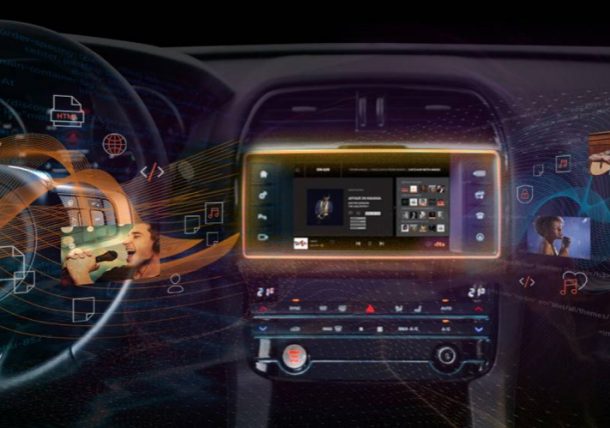

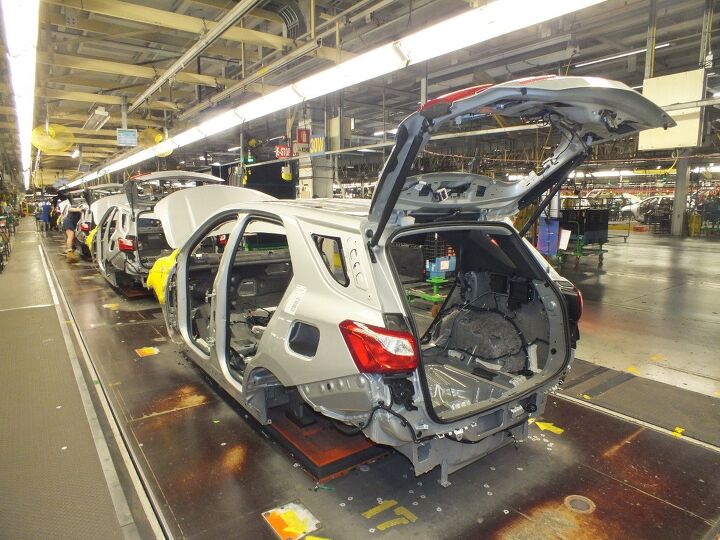
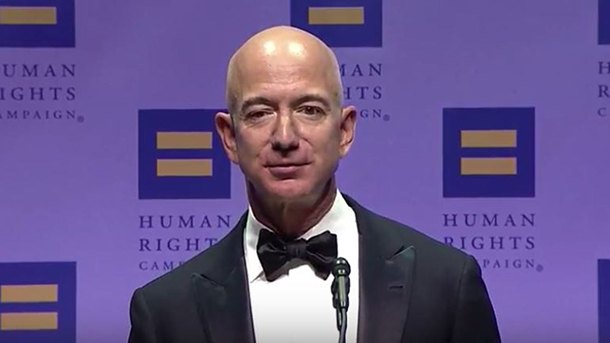
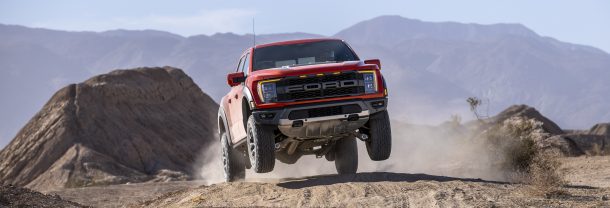

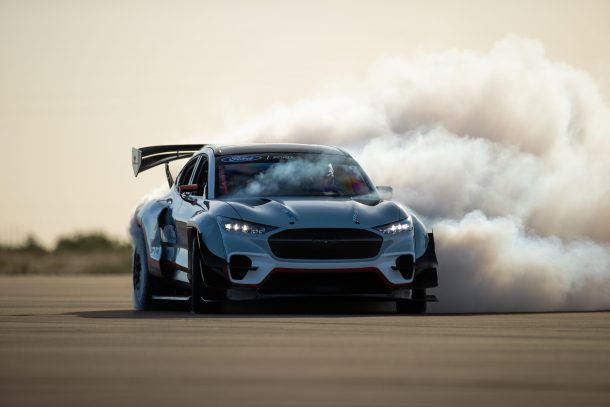
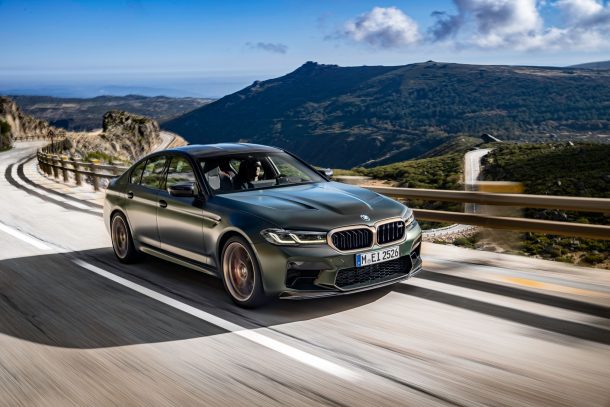

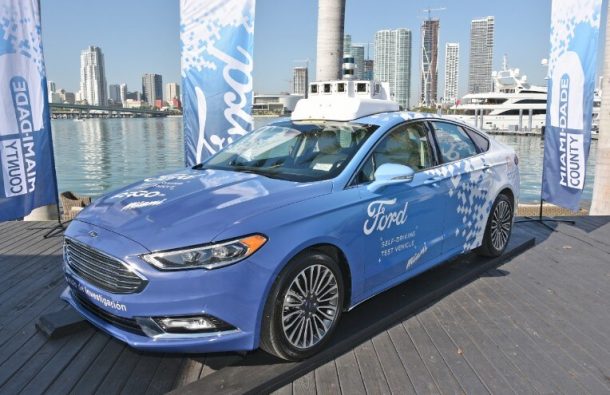





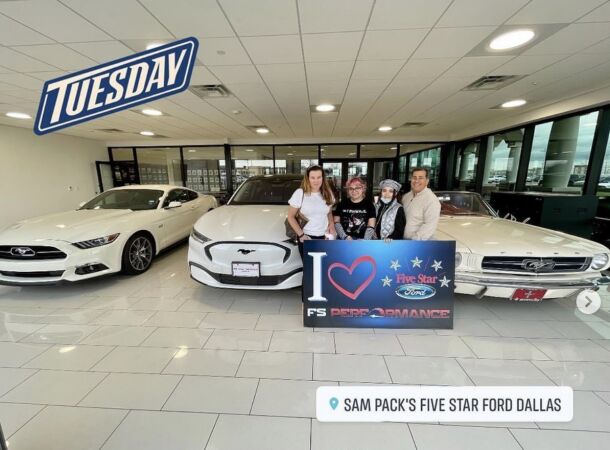


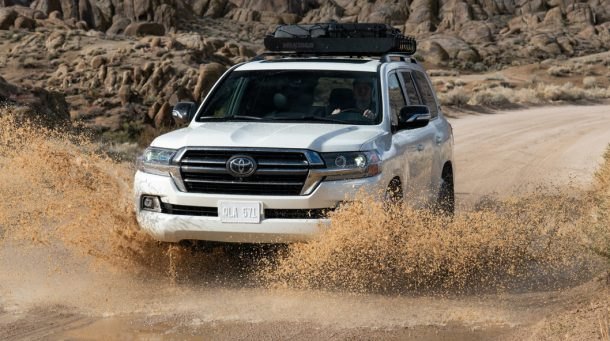

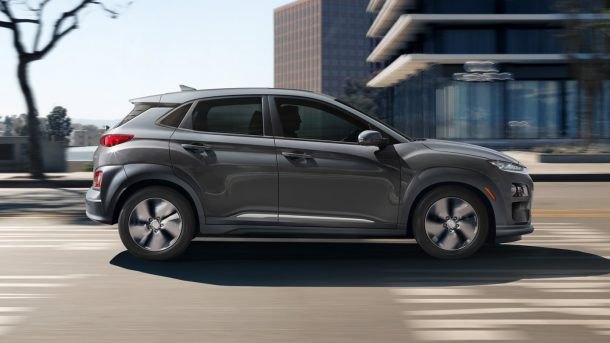
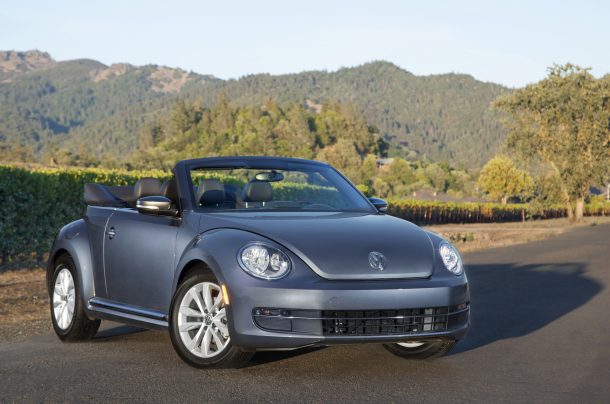


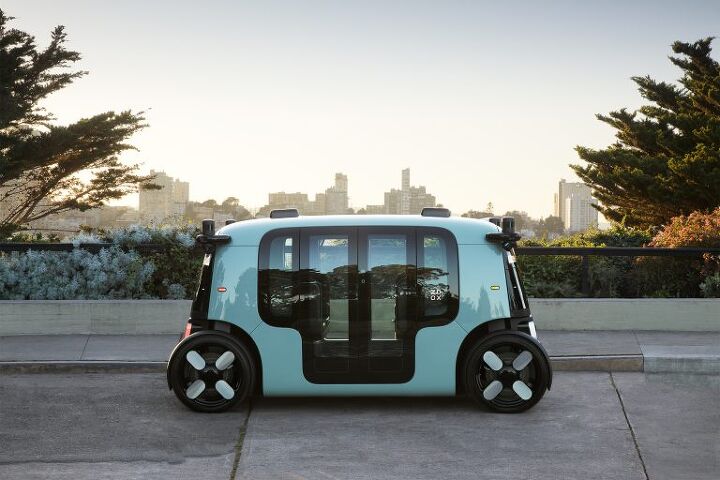
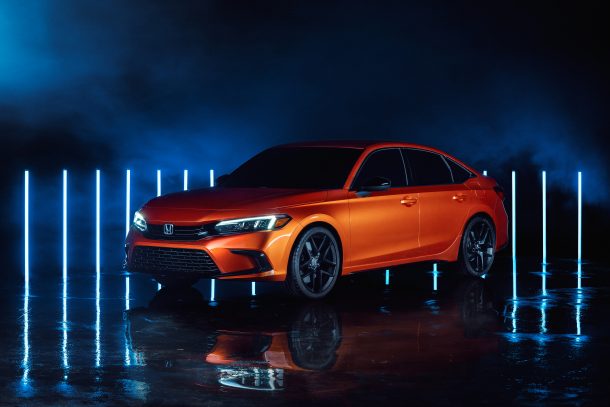
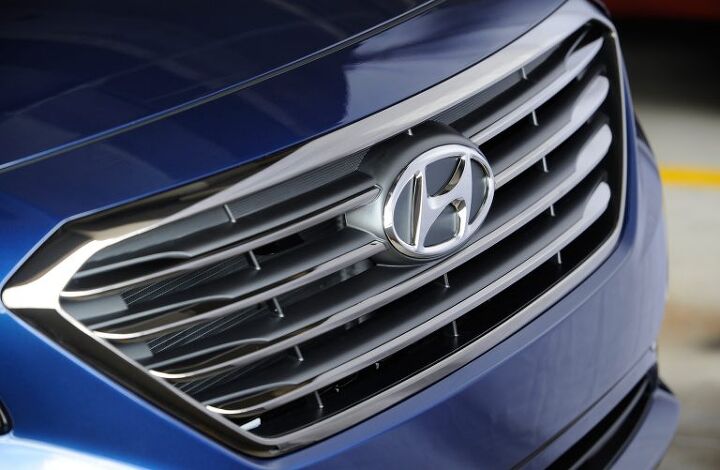


![BMW Taps Amazon Cloud Computing for Data Lair [Updated]](https://cdn-fastly.thetruthaboutcars.com/media/2022/07/19/9162722/bmw-taps-amazon-cloud-computing-for-data-lair-updated.jpg?size=720x845&nocrop=1)






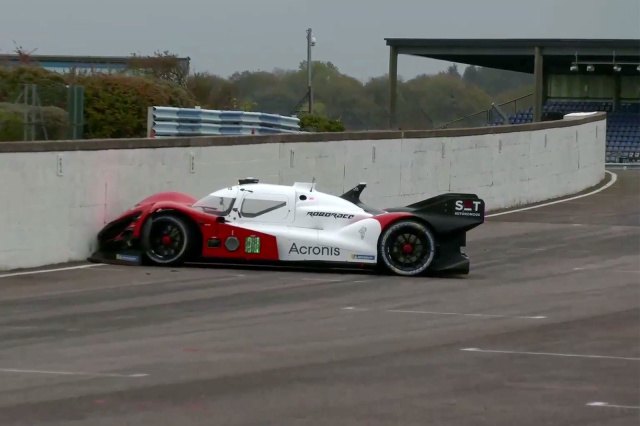

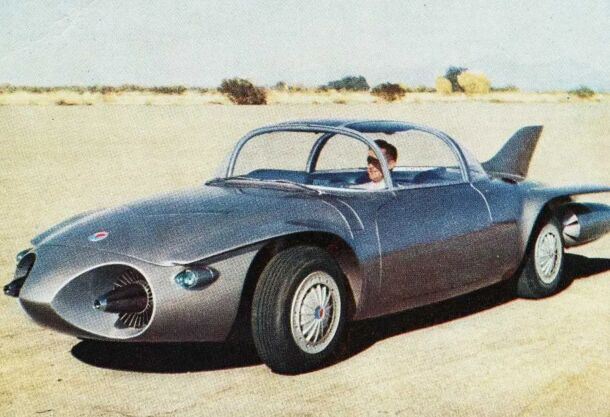
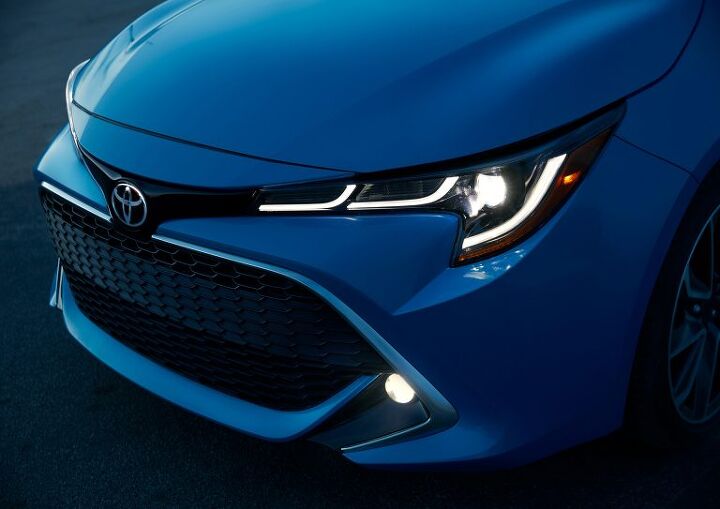



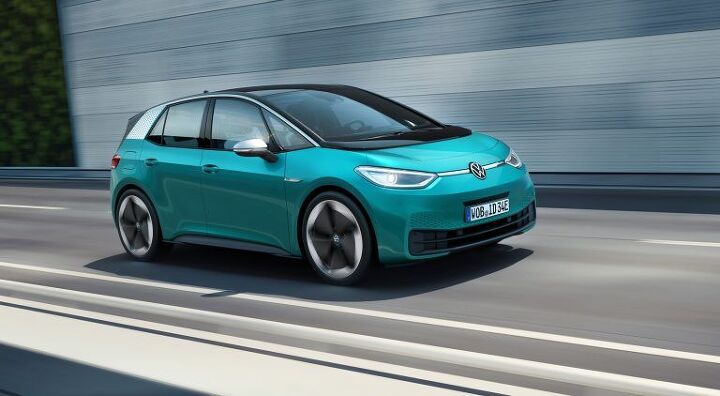

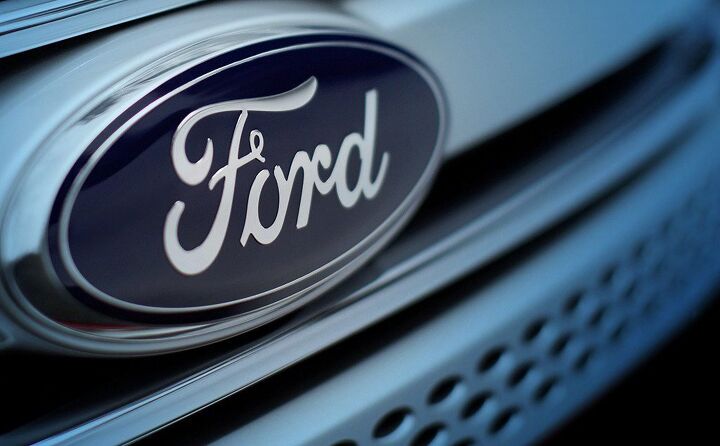





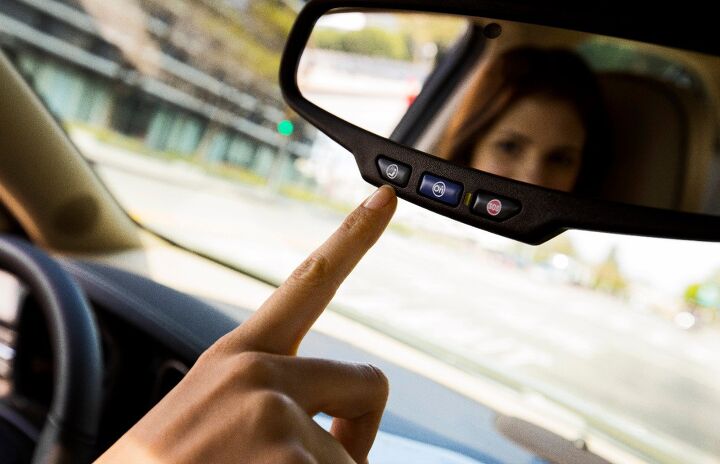
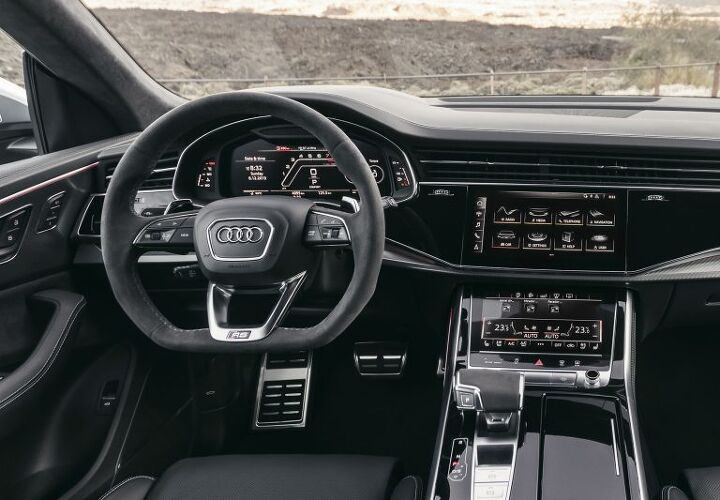















Recent Comments